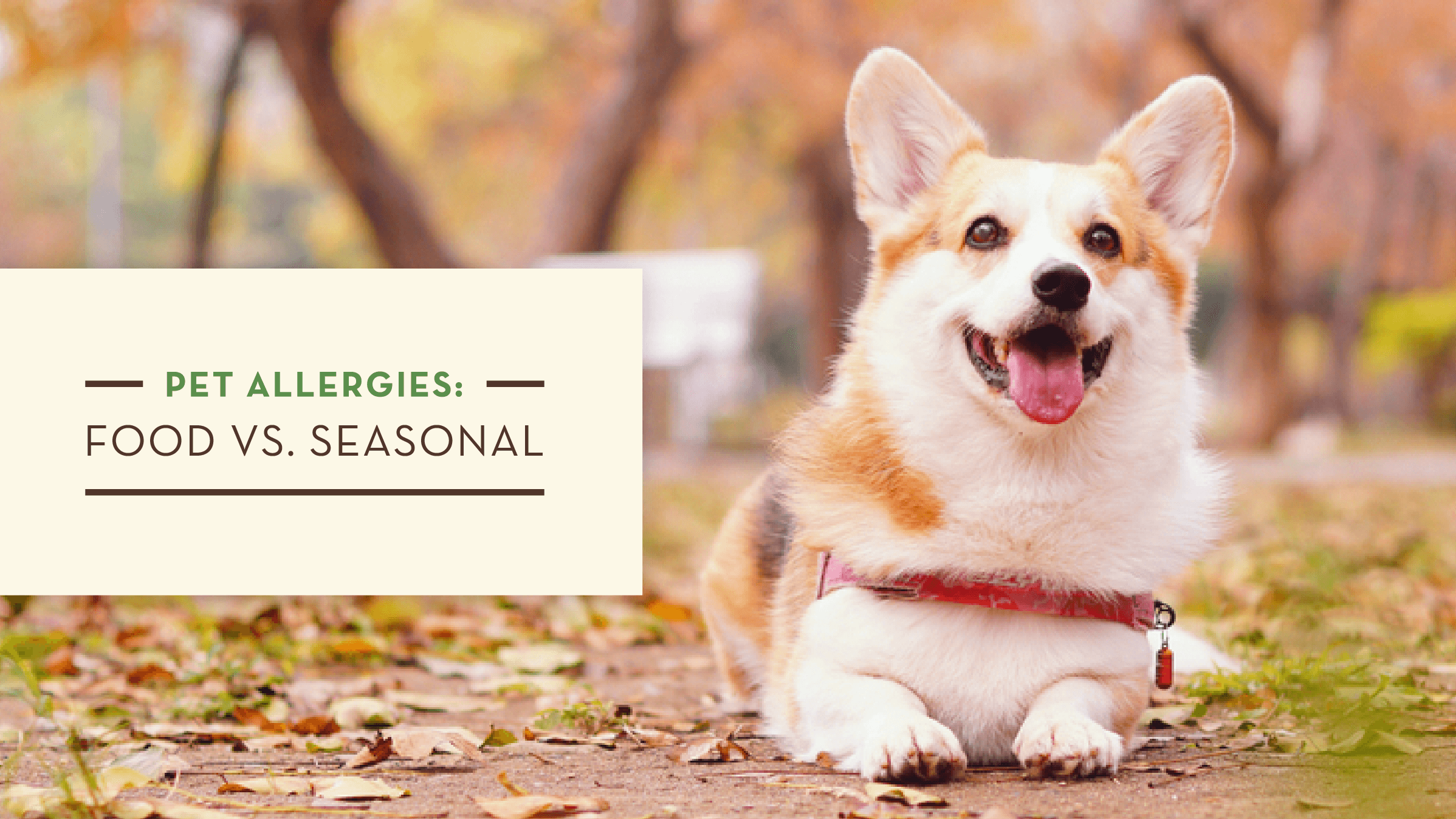When Spring approaches each year, the weather warms up, the flowers bloom and the dreaded allergies return. Many of us know the feeling, whether it’s itchy eyes, a runny nose, or all the above! Just like humans, pets can suffer from environmental allergies as well. In fact, 30 percent of pets experience allergic reactions to both food and the environment. The two kinds can present similar symptoms, so it’s beneficial to understand the differences.
Acknowledging Food Allergies
Just like humans, food allergies can suddenly occur in pets, even if they’ve eaten the ingredient for years with no reactions. The symptoms can manifest in various ways, but some signs of a food allergy in your pet are itchiness, excessive skin licking or chewing, red and inflamed skin, hair loss, skin infections and ear infections. Symptoms may also appear in the form of gastrointestinal issues, like flatulence, increased bowel movements, vomiting and diarrhea.
Understanding Seasonal Allergies
Besides food, pets also can have reactions to allergens like pollen, weeds or trees in springtime and dust or mold in the winter months. Many times, environmental allergy symptoms present themselves like food allergy symptoms: skin itchiness and inflammation, ear problems and respiratory issues. While it’s important to pay attention to the time of year you notice your dog’s symptoms, it’s not a safe assumption the allergies are one or the other – after all, many pets’ food and environmental allergies overlap. To help manage your pet’s environmental allergies, many experts recommend regular baths, which wash away allergens from the skin and coat.
Boosting the Immune System
Allergies are an immune system response, regardless of which kind they are. As a pet parent, there are things you can do to keep your pet’s immune system optimal and healthy to fight off allergies. For example, feeding food with antioxidants, which are known to boost health and longevity and may lower risk of infections. Our pet food now contains seaweed, which is a powerhouse of antioxidants and known to improve the overall immune system. Pets also often benefit from anti-inflammatory diets.
Allergies affect both humans and pets, so it’s important to learn about the different types and know how you can help your cat or dog. Remember that food allergies have no seasonality, while environmental allergies occur during certain times of year, but they often overlap. Your veterinarian is always the best resource when it comes to your pet’s allergies, so make sure to pay a visit if you notice any symptoms.





